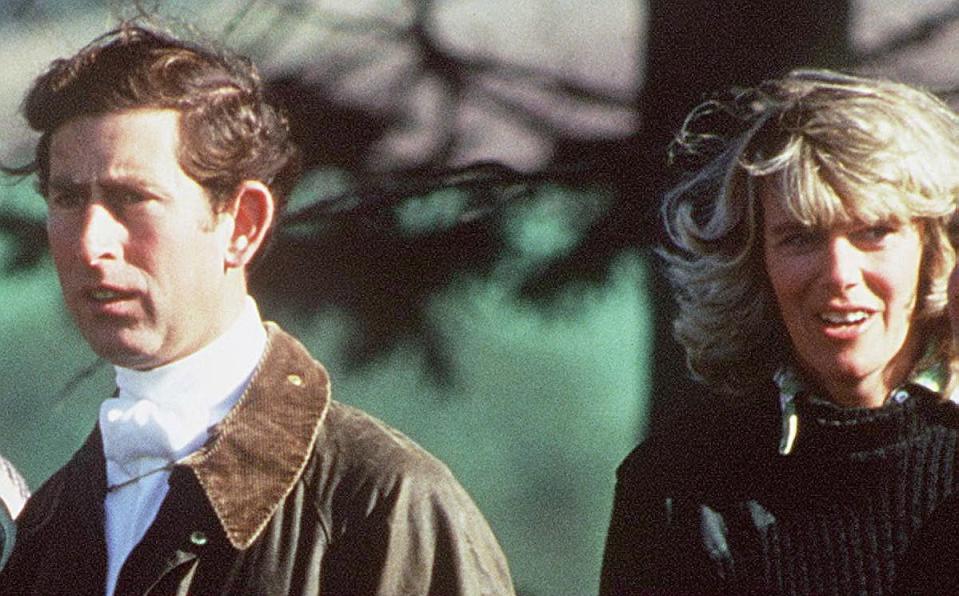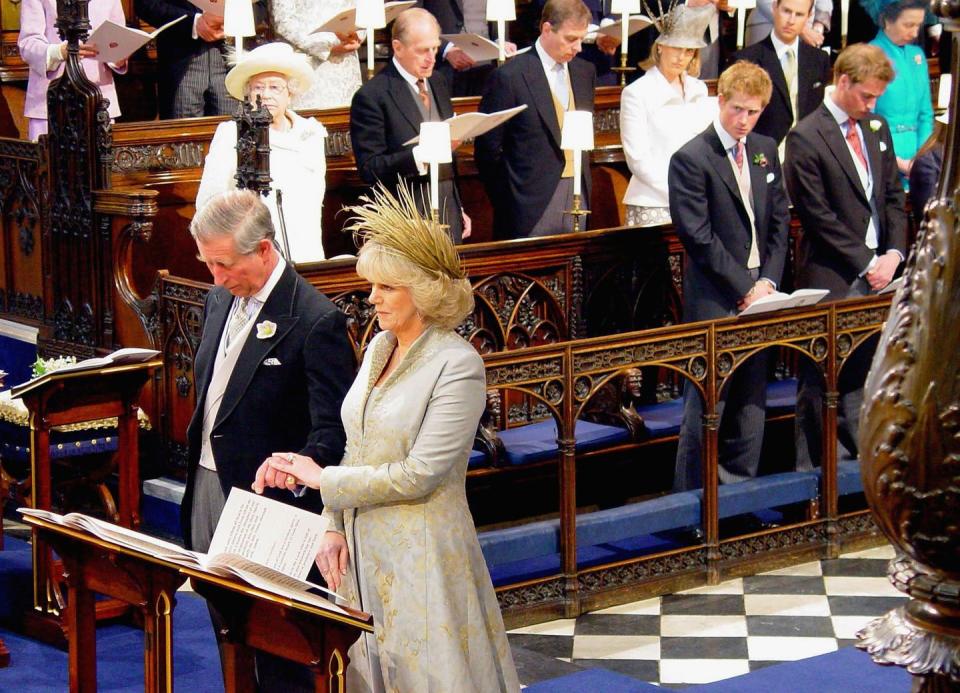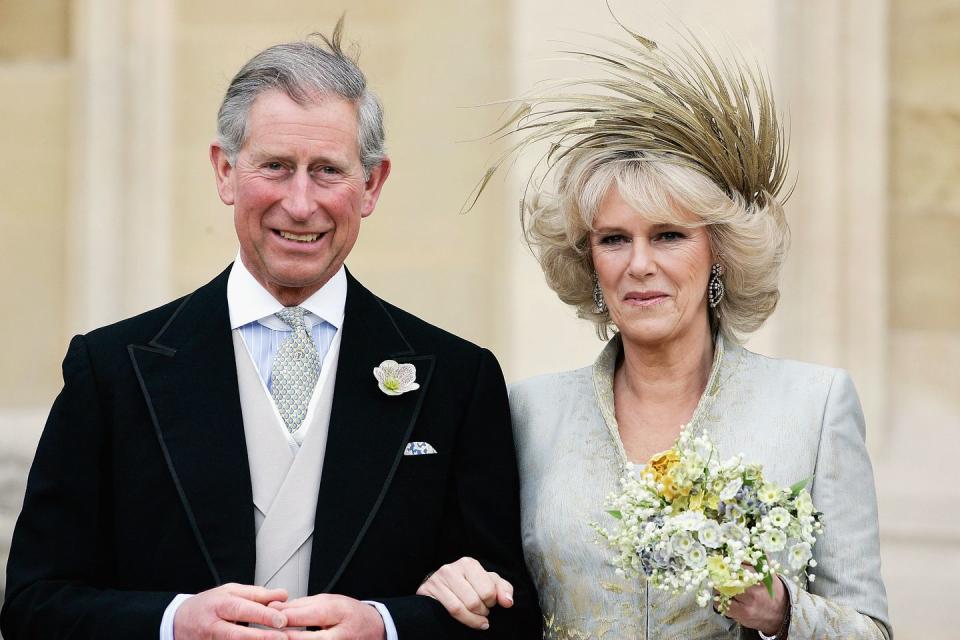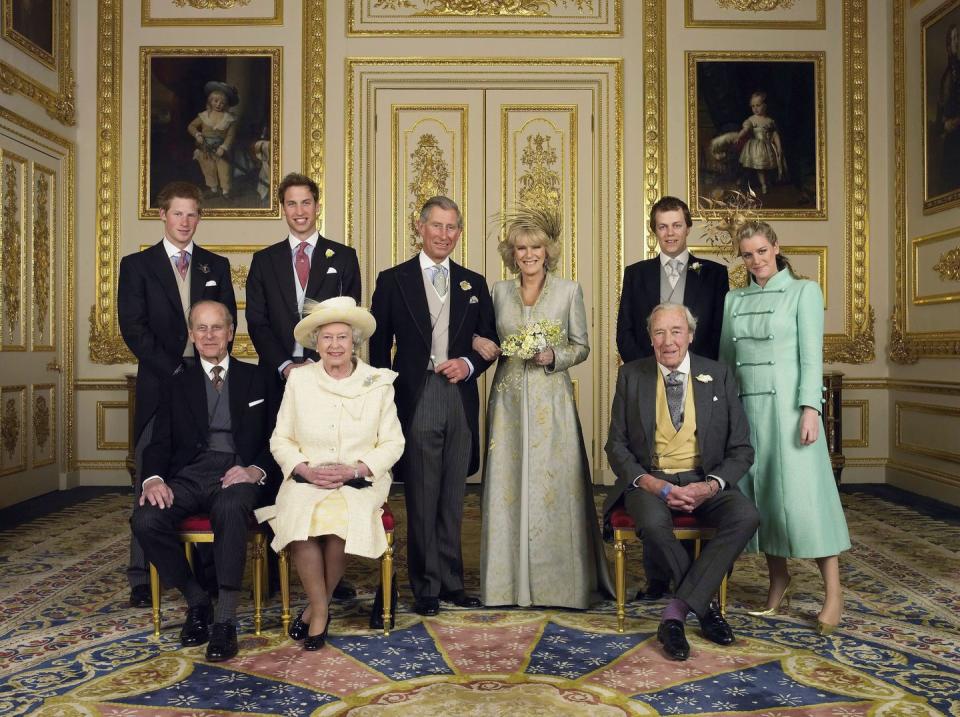Prince Charles and Camilla Parker Bowles’ Wedding Had to Be Split Into Two Parts

Prince Charles and Camilla Parker Bowles were married on April 9, 2005 in a civil ceremony at Windsor Guildhall, followed by a service at St. George’s Chapel.
Queen Elizabeth spoke at the couple’s wedding reception, wishing them well.
Season 3 of The Crown will explore the beginning of Prince Charles and Camilla’s relationship.
More than 14 years ago, on April 9, 2005, Prince Charles and Camilla Parker Bowles tied the knot in a civil ceremony at Windsor Guildhall. Afterward, the pair went to St. George's Chapel in Windsor Castle to receive an official marriage blessing from the Archbishop of Canterbury. Photos from the event reflect a day of jubilant crowds, trendy fascinators, and smiles all around. In actuality, the day, while exciting, was a rather contentious event for many.
Long before their nuptials came a controversial relationship. In 1992, while Prince Charles was still married to his first wife, Princess Diana, the press released private tapes of an intimate phone call between the Prince of Wales and Camilla — an exchange that solidified that the two were having an affair.

During Charles's divorce from Diana, her tragic death in 1997, and in the years that followed, Camilla and Charles remained together. All the while, Queen Elizabeth strongly disapproved of their relationship. In British journalist Tom Bower's biography, Rebel Prince: The Power, Passion and Defiance of Prince Charles, the reporter wrote that the Queen allegedly called Camilla "that wicked woman" and said she wanted "nothing to do with her."
Before things got better between Camilla and the Queen, they got worse. In early 2000, the monarch was reportedly so upset with Charles that she refused an invitation to his 50th birthday party.
Over time, as the royal family recovered from Diana's tragic death, the Queen warmed up to Camilla. Later in 2000, Her Majesty accepted an invitation to an event in Highgrove knowing Camilla would be there. It's now recognized as a sign that the Queen, at last, approved of their relationship.
The public's opinion was another story. A Populus poll cited in Vanity Fair revealed that in 2004, just 32% of participants were okay with Charles and Camilla getting married. Twenty-nine percent were against it, 38% didn't care, and 2% had no opinion.

Some Brits eventually got on board with Prince Charles and Camilla as a couple, but once their engagement was announced in February 2005, they faced another round of angry outbursts. Biographer Penny Junor in The Firm: The Troubled Life of the House of Windsor recalled receiving emails from viewers of BBC Breakfast expressing their utter disgust at the news. One woman even stood outside of Clarence House and announced that Charles should "never be king" if he was to wed Camilla.
At the time of their engagement, the Church of England was largely not supportive of second marriages if a spouse was still living (which was the case of Camilla's ex, Andrew Parker Bowles). To appease the couple's situation, they decided to have a royal wedding unlike any other and divide it into two parts — a civil ceremony at Windsor Guildhall and a service at St. George's Chapel to receive a special marital blessing.

Despite the mixed feelings, the Archbishop of Canterbury, Rowan Williams, gave his stamp of approval, saying that he endorsed the marriage and that their arrangement was "consistent with Church of England guidelines concerning remarriage."
The couple had initially picked Windsor Castle as the location for the first half, but their unique predicament forced a venue change. Having a civil wedding there would legally require opening it up to other couples for at least three years, so they instead moved the ceremony just outside the castle walls.
They also originally chose Friday, April 8, as the day for the ceremony, but when the week arrived, another curveball came their way. The palace had to postpone the wedding 24 hours so Prince Charles could attend the funeral of Pope John Paul II on behalf of the Queen. The last-minute switch forced manufacturers to change the date stamped on the commemorative products churned out for the occasion.
By then, the mood had shifted in Charles and Camilla's favor. While Juror wrote in Vanity Fair that some members of the public felt apprehensive, the overall response was positive. She recalled that Camilla had been suffering from sinusitis that morning, but her spirits were instantly lifted once she felt the energy from the crowd. There were a few boos, but most spectators were there to show their support.

"She looked endearingly frightened when she stepped out of the car with Charles and waved briefly before disappearing into Guildhall," Juror wrote. "But it was clear the crowd was on her side."
For the first part of their wedding day at Windsor Guildhall, just 28 people gathered for the intimate event to watch Charles and Camilla take their vows. The Duchess chose a cream silk chiffon dress and a matching coat from Anna Valentine for the occasion. Milliner Philip Treacy designed her wide-brimmed hat with French lace and feathers. Prince William and Camilla's son, Tom Parker Bowles, served as the witnesses.
Neither Queen Elizabeth nor Prince Philip attended the civil ceremony, though they later made an appearance at St. George's Chapel and the reception. Robert Hardman, the Queen's biographer, reportedly claimed that their absences were a sign of the Queen's "disapproval of the arrangements, not of the marriage" itself.

For the blessing at St. George's Chapel, Camilla changed into a second outfit: a pale blue dress hand-embroidered with gold thread. Philip Treacy also designed her headdress with gold-leafed feathers and Swarovski diamonds, BBC reported. Following the ceremony with the Archbishop of Canterbury, the newlyweds stepped outside with large grins on their faces.
From then on, Camilla was to be known as Her Royal Highness, the Duchess of Cornwall. Camilla approached the masses of fans, thanking everyone for coming out to celebrate their big day.

At the reception, the Telegraph reported that Charles toasted his new bride with a heartfelt speech in which he thanked the new Duchess, "who has stood with me through thick and thin and whose optimism and humor have seen me through." He also took a jab at the media's lead-up coverage by cheering, "Down with the press!"
Perhaps the most meaningful moment of the rainy day came at the reception, when the Queen compared the couple's relationship to the Grand National, a popular horse race known for its difficult jumps:

"They have overcome Becher's Brook and The Chair and all kinds of other terrible obstacles. They have come through and I'm very proud and wish them well. My son is home and dry with the woman he loves."
For can't-miss news, expert beauty advice, genius home solutions, delicious recipes, and lots more, sign up for the Good Housekeeping newsletter.
You Might Also Like


